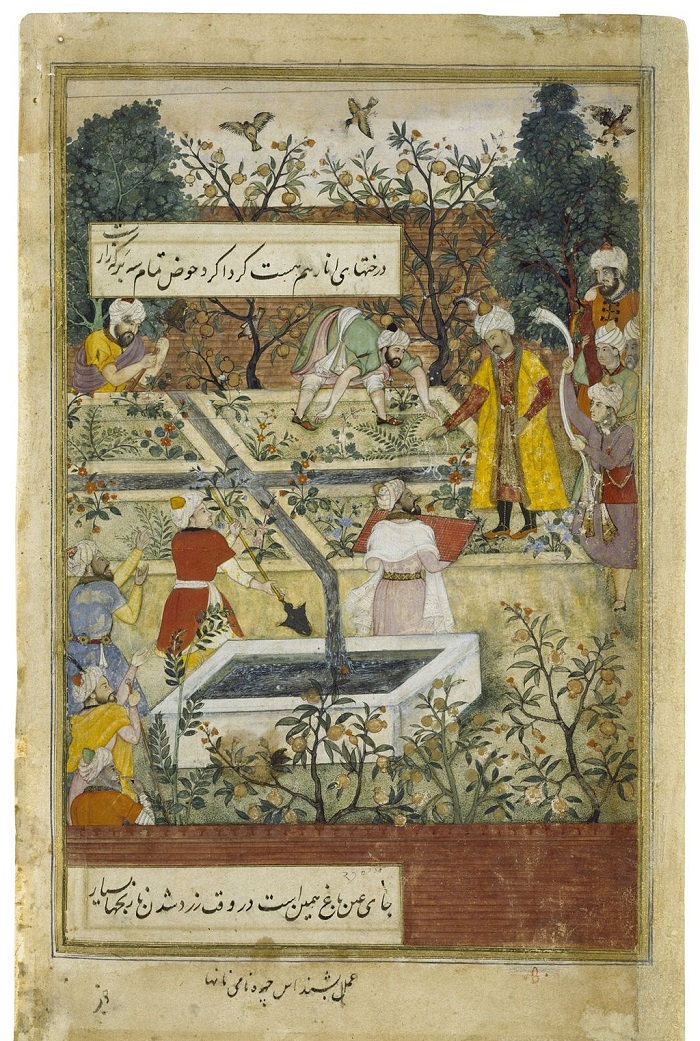FWP:
SETS == PARALLELISM;
POETRY
TESTING: {4,4}
This clever little verse implies that just as the birds of the garden are at home in the garden and have a natural right to live and thrive there, so the poets belong in the presence of the king-- and he ought to maintain them generously as adornments of his court.
The commentators tend to maintain that this ghazal was composed
for a mushairah at which the King was present, and that would certainly seem to be possible.
But I don't know if it's really true or not. Arshi, who usually provides us
any relevant historical information, has nothing to say about this verse.
Given the commentators' 'natural poetry' bias and the fact that none of them
presents any evidence, I'm keeping an open mind on the question. Ghalib might,
after all, have meant simply to show the ghazal to the King informally.

Nazm:
At the mushairah in which the author recited this ghazal, the King was present. (230)
== Nazm page 230